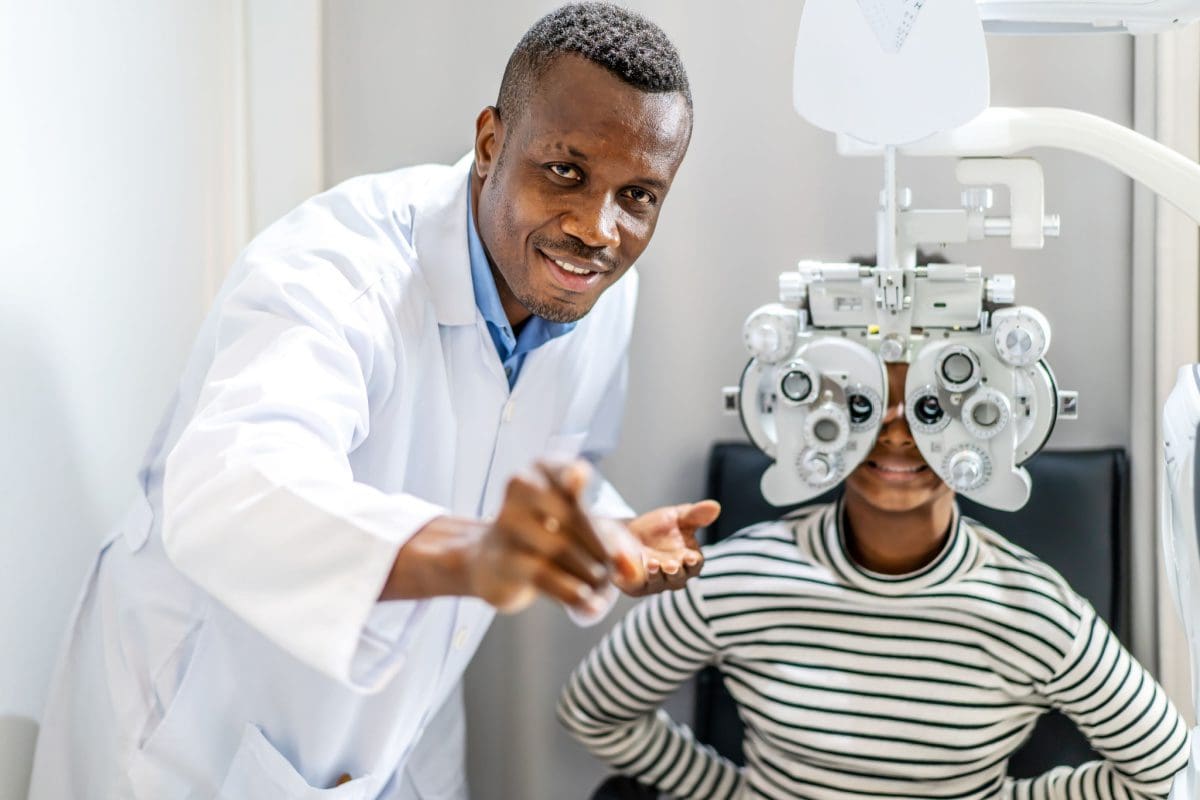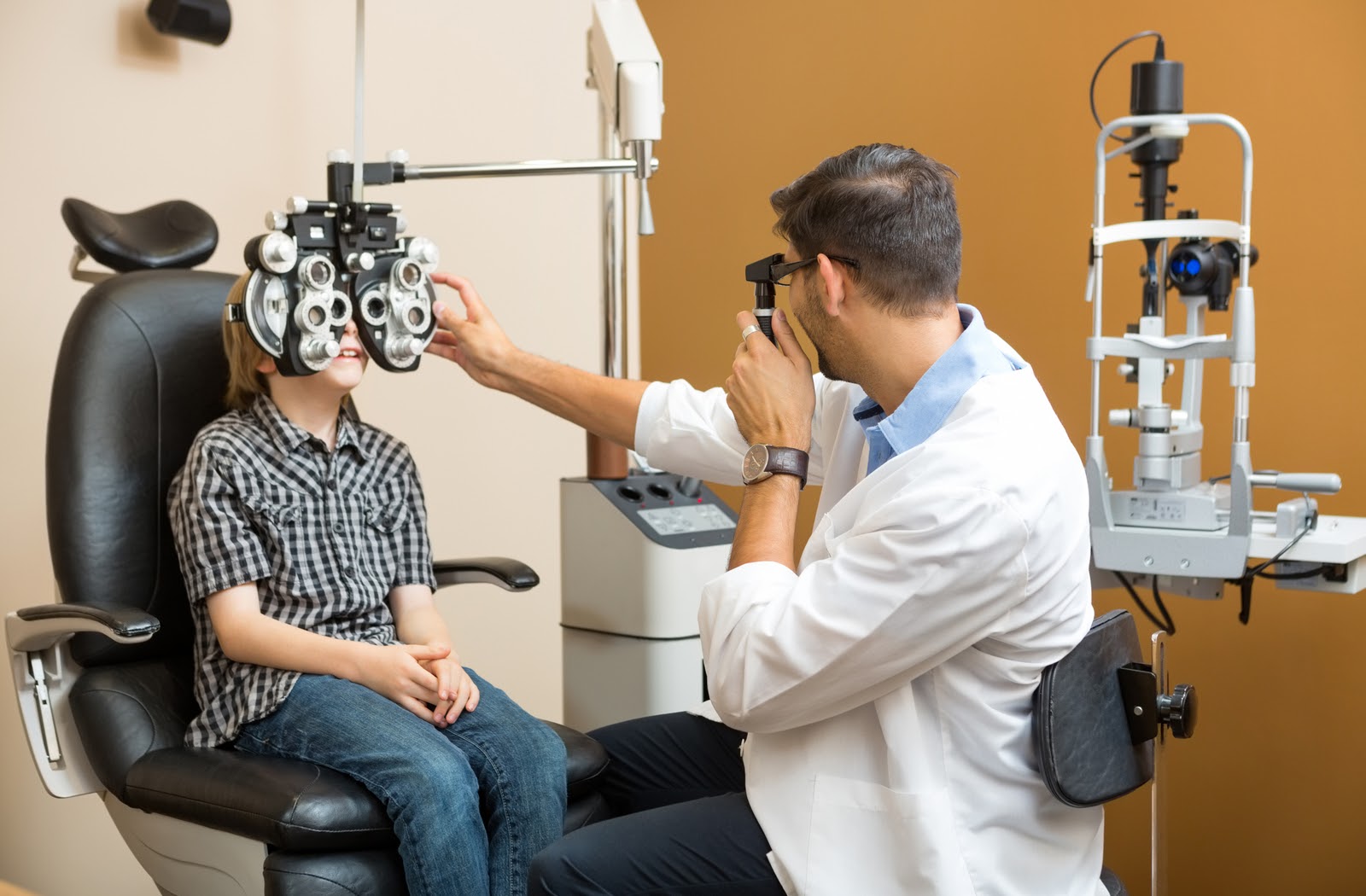How an Optometrist Can Help Prevent and Manage Common Vision Problems Successfully
The role of an eye doctor prolongs far beyond simply prescribing glasses; it includes a detailed technique to preventing and handling different vision troubles. Normal eye exams are crucial for early detection of conditions like refractive errors and glaucoma, enabling prompt interventions that can dramatically boost quality of life. By creating individualized treatment plans and offering advice on preventative treatment strategies, eye treatment professionals guarantee that patients are furnished to preserve optimum eye health. Nevertheless, the nuances of their method and the most up to date developments in eye treatment might raise questions regarding best techniques and possible end results.
Value of Normal Eye Exams

Additionally, normal eye examinations can expose systemic health and wellness concerns, consisting of diabetes and high blood pressure, as the eyes often reflect adjustments in overall wellness. Developing a regular timetable for eye tests, usually each to 2 years, enables for timely interventions and can assist maintain vision.
Individuals in specific age teams or with specific danger elements, such as a family background of eye illness or chronic health problems, may take advantage of even more constant assessments. By focusing on these appointments, patients can guarantee they receive personalized care customized to their unique requirements. Eventually, routine eye exams play an essential function in both preventative and positive eye treatment, making it possible for individuals to maintain their top quality of life and visual feature.
Early Detection of Vision Problems
Early discovery of vision problems is important for effective monitoring and therapy, as prompt intervention can substantially minimize the progression of eye problems. Normal eye examinations serve as a crucial tool in recognizing prospective issues before they intensify right into extra serious conditions. Eye doctors use different diagnostic strategies to assess aesthetic acuity, eye positioning, and general eye health and wellness, enabling them to identify abnormalities at a beginning.
Common vision problems, such as refractive errors, cataracts, and glaucoma, may not offer recognizable signs and symptoms originally. As a result, routine testings are crucial for people of any ages, especially those with a family members history of eye problems or various other risk aspects. Early identification allows for prompt referrals to experts and can bring about better outcomes, reducing the possibility of problems.
Furthermore, innovations in modern technology have enhanced the capability to diagnose conditions early, therefore enhancing the performance of succeeding treatments. Clients need to be proactive in organizing normal appointments and communicating any type of changes in their vision to their eye treatment service provider. By focusing on early discovery, people can take significant strides toward protecting their vision and keeping general eye wellness.
Personalized Treatment Plans
When vision troubles are determined, the solution of personalized therapy plans becomes necessary to deal with the one-of-a-kind requirements of each client. Ophthalmologist utilize comprehensive evaluations, including aesthetic acuity tests, refraction evaluations, and eye health exams, to collect essential information regarding a client's certain problems. This data aids in making targeted treatments that align with the individual's way of life, preferences, and total health condition.
Personalized therapy strategies may incorporate a series of choices, consisting of restorative lenses, medicines, or progressed therapies tailored to specific problems such as glaucoma, macular degeneration, or diabetic person retinopathy. In addition, the inclusion of educational parts is vital, as individuals are informed about their problems and the reasoning behind the chosen therapy approaches. This collaborative approach cultivates view it now a higher sense of ownership and adherence to the treatment regimen.
Additionally, follow-up consultations are vital for monitoring development and making changes as essential. By prioritizing personalized therapy strategies, eye care professionals can not only enhance the performance of treatments but additionally enhance the total lifestyle for their patients, equipping them to handle their vision health and wellness proactively and properly.
Precautionary Treatment Methods
Preventative care strategies play an important duty in keeping optimal eye wellness and stopping the beginning of vision troubles. Regular eye exams are essential, as they permit eye care experts to detect possible problems early, also prior to signs manifest. These exams can identify refractive mistakes, cataracts, and glaucoma, making it possible for timely treatment.
In enhancement to regular examinations, taking on a healthy and balanced lifestyle substantially adds to eye wellness. A well balanced diet rich in vitamins A, C, E, and omega-3 fatty acids can improve visual function and decrease the danger of age-related macular deterioration. Additionally, protecting the eyes from harmful ultraviolet (UV) rays by using sunglasses with correct UV protection is important in stopping problems like cataracts.
Frequently involving in physical activity likewise promotes general health and wellness, including eye health. By executing these preventative treatment approaches, people can significantly improve their eye health and lower the chance of establishing major vision troubles.

Function in Managing Chronic Issues
Handling chronic problems typically needs a collaborative technique, and eye doctors play a vital duty in this process. Several systemic conditions, such as diabetic issues and visit hypertension, have significant ocular effects that can affect vision. Optometrist are essential in surveillance and handling these conditions, as they can discover very early indicators of difficulties that might not appear to the client or medical care copyright.
For instance, diabetic retinopathy is a common repercussion of unmanaged diabetes mellitus, and routine eye exams can facilitate early intervention, avoiding extreme vision loss. Ophthalmologist can also supply tailored advice regarding lifestyle adjustments and required clinical references to make sure detailed individual care.
Moreover, conditions like autoimmune disorders might reveal ocular symptoms, necessitating an eye doctor's expertise in both vision care and the underlying systemic problems. eye doctor. By click here to find out more working closely with key treatment medical professionals and other professionals, ophthalmologist help coordinate therapy approaches that include both general and visual wellness

Final Thought
In final thought, the function of an optometrist is essential in stopping and handling typical vision problems. Regular eye tests help with early discovery of problems, enabling customized therapy plans tailored to individual needs. Via the application of preventative care strategies and attentive management of chronic conditions, optometrist contribute significantly to the enhancement of total vision health and wellness. The proactive approach adopted by these specialists highlights the relevance of maintaining optimum eye wellness throughout life.
By developing customized treatment plans and supplying advice on preventative care methods, eye treatment experts make sure that patients are geared up to keep optimum eye health and wellness.Routine eye examinations are essential for maintaining optimum vision and total eye health. During an eye test, an eye treatment professional assesses visual acuity, reviews the health of the eyes, and may execute tests to check for conditions such as glaucoma, cataracts, and macular deterioration.
Eye doctors utilize different analysis methods to evaluate aesthetic acuity, eye alignment, and total eye wellness, allowing them to discover problems at a very early phase.
Routine eye evaluations are basic, as they allow eye care professionals to detect potential issues early, even before signs show. (eye doctor)